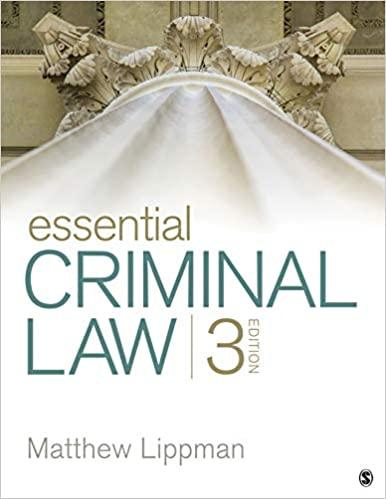Question
States A, B, C, D and E signed a treaty which provided for free movement of all agricultural products grown/produce in any of the contracting
States A, B, C, D and E signed a treaty which provided for free movement of all agricultural products grown/produce in any of the contracting party (The Treaty). This means that States A, B, C, D and E agree that no customs duties and charges equivalent to customs duties (CEEs), such as inspection fees, will be imposed on agricultural products imported from the territory of any contracting party. The Treaty allows a contracting party to carry out free inspections of agricultural goods if there is evidence that a product in question constitutes a danger or a potential danger to health or life of humans, animals or plants. The Treaty was subject to ratification by each of State A, B, C, D, and E.
State B is known worldwide for the quality and style of leather shoes made in that State. Manufacturers of shoes in State B put pressure on the government of State B to include the following statement at the time of ratification of the Treaty:
"State B understands that products made of animal leather should not be regarded as agricultural products. If this understanding of State B is not accepted by the contracting parties, State B will no longer wish to be a contracting party to the Treaty".
State E ratified the Treaty and accepted all statements made by States A and C. However, it made an objection to the statement made by State B and objected to the entry into force of the Treaty.
Assume that the Treaty has been in force for 13 months.
What is the relationship under the treaty between State E and State B?
Step by Step Solution
There are 3 Steps involved in it
Step: 1

Get Instant Access to Expert-Tailored Solutions
See step-by-step solutions with expert insights and AI powered tools for academic success
Step: 2

Step: 3

Ace Your Homework with AI
Get the answers you need in no time with our AI-driven, step-by-step assistance
Get Started


